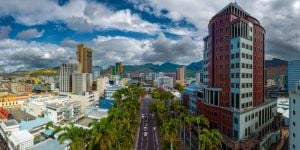
With the end of the pandemic in sight, countries compete to attract qualified foreigners. Canada stands out as a favorite expat destination and keeps on highlighting its immigration policies. Other countries follow suit, with new visas and policies targeting foreign talent. So why are countries focusing on selective immigration, and how does it help economies?
What is selective immigration?
- Defining immigration and foreign worker
Before examining the concept of “selective immigration,” let's look back at the definition of “immigrant.” According to the first legal definition given by the Treaty of Rome in 1924, an immigrant is “any foreigner who comes to a country to look for work and with the expressed or presumed intent to settle there permanently, while a person whose goal is to live there temporarily is defined as a mere worker.”
It's worth noting that the term “expat,” which was coined during colonial times, was meant to differentiate colonists from other migration groups. Today, “expat” in the strict sense of the word refers to people working abroad under an expatriation contract. But pieces of legislation concerning immigration, of course, use only the terms “immigrant” and “foreign worker.” According to the Treaty of Rome, expats (with expatriation contracts) are just foreign workers. The others are immigrants.
- Selective immigration
Selective immigration concerns foreigners who have been selectively authorized to go live on a given territory. While immigration laws emphasize “openness to international talent,” in practice, it's actually a selective process. First, work visa applications are given preference over other types of visas (family reunification visas, asylum visas, etc.). These workers are called “economic immigrants.” States prefer focusing on them because they are the ones who boost economic growth.
But yet another stage of selection takes place even among workers. Selective immigration gives preference to some job sectors and some types of workers. Governments give preference to qualified foreigners in sectors experiencing labor shortages.
The example of selective immigration in Canada
When talking about selective immigration, Canada's policies are often brought up. It is a land of asylum and refuge, a multicultural land, and immigration is in the very DNA of the country. One Canadian out of five is an immigrant. Those who build the nation are immigrants. Indeed, immigrants are the lifeblood of the country. The majority of foreigners who move to Canada are economic immigrants. Beset by a labor shortage, Canada wants to welcome 900,000 additional foreigners in 2023 and 2024. We are, of course, talking about economic immigrants.
How the Canadian model works: the points-based system
Canada has a points-based system. This system was set up back in the 1960s and, at the time, was the first of its kind. The applicant needs to obtain at least 67 points out of 100 to be eligible for immigration. The points system has six categories: a maximum of 28 points for language ability (English or French language test), 25 points for education, 15 points for work experience, 12 points for age, 10 points if the applicant already has an offer of arranged employment in Canada that lasts at least 1 year, 10 points if the applicant demonstrates high potential for adaptability (good level of English and/or French, previous studies in Canada, family living in Canada, etc.). In addition, the applicant can obtain bonus points by choosing to move to regions that are highly affected by labor shortages or remote regions with low birth rates.
The Canadian government makes it clear that immigration is indispensable for both economic and population growth. One cannot happen without the other. Despite an inflation rate of over 7% in July, the unemployment rate remains low. There was even an “all-time low” unemployment rate of 5.1% last June. In some provinces like Quebec, the unemployment rate has even gone down to 3.9%. The economy grew by 3.1% in the first economic quarter of 2022. The economy remains strong, and the demographic growth rate is the envy of many other countries.
Immigration, demographics and economic growth
With a growth of +5.2% between 2016 and 2021, the population growth of Canada is the strongest among G7 countries. For the record, the G7 countries are Germany, the United States, France, Italy, Japan, the United Kingdom and Canada. Japan and Italy have a negative growth rate, -1.3% and -2%, respectively. Germany barely manages to reach a 1% growth rate. France is not faring much better (1.2%). The United States and the United Kingdom have reached a 2.6% and 2.9% rate of demographic growth. In Canada, it's definitely immigration and not any rise in fertility, which explains rapid demographic growth. Selective immigration, population growth, economic growth: Canada seems to have found a virtuous cycle.
Selective immigration is sought after by major economic powers
Canada, Australia, Austria, Germany, the United States, Japan, the United Kingdom are major economic powers that seem to have adopted the selective immigration system.
In Japan, an immigration law reform in 2019 introduced two new visas. The first one, designed for qualified foreigners, targets the sectors of construction, hospitality (restaurants), elderly care, etc. The second visa targets highly-qualified foreigners. But these two visas have been controversial, as the first one offers less security than the second one. Japan has long been ethnically homogenous and still struggles with the idea of immigration. But the country is increasingly aware of the indispensable role of immigrants in its economic growth. Japanese authorities know they will need close to 7 million additional foreign workers by 2024 to achieve economic growth of 1.24% per annum.
In the United States, immigrants have the choice between the green card, which also has a lottery system for different regions of the world, and the HB1 visa, which is reserved for qualified foreigners who've been sponsored by an American company. In Australia, a prospective immigrant must apply for a job on the Skill Occupation List (SOL). In 2021, the Economic Analysis Council (CAE/Conseil d'analyse économique) recommended France to also set up a points-based system to attract more qualified foreign workers and boost the economy. According to the CAE, “a great number of economic studies have demonstrated the benefits of having diverse and qualified labor migration.”
What are the benefits of selective immigration?
The first advantage of selective immigration lies in the concept itself. The selection of candidates allows countries to pick those with the best profiles. Indeed, various studies have shown that foreign workers tend to be more productive than local ones. They are more independent, have more self-confidence, and are more proactive. Each foreign worker has a background that they put at the service of their employer. Diversity is an asset that brings in a lot of money, and major international corporations have understood this. Diversifying the workforce helps build so many economic bridges with other countries.
According to the International Monetary Fund (IMF), a 1% rise in the influx of immigrants in a country makes production increase by “about 1% in the fifth year.” The economic stimulus provided by immigration can also help improve the wage levels of locals. Immigration also has a beneficial effect on birth rates. In many countries, it has been steadily declining and, during the pandemic, experienced a sharp drop. The situation in some countries, like Italy, is critical. But there can be no economic growth without a workforce. By settling permanently in the country with their families (or starting a family in their new country), foreign workers play a significant role in population growth.
On a practical level, countries seeking out foreign labor through selective immigration see that it can only reap benefits. The Canadian model is judged to be the most “transparent and fair one” by the CAE. This view is also shared by authorities in Austria, France and other countries that are interested in emulating the system.
Selective immigration: limits and controversies
Selective immigration versus uncontrolled migration: these two terms have stirred up many political debates. Selective immigration, as the name indicates, allows countries to select only foreigners with professional profiles they need at a given moment. On the other hand, uncontrolled immigration can represent a burden for governments when they experience an uncontrolled influx of immigrants. What's implied here is barely veiled: these other immigrants are deemed to be “useless” for the country's economic growth, and they would instead place a burden on public finances.
Organizations that denounce the system's restrictions talk about the discrimination against immigrants deemed “disposable.” Some countries seem to forget that actual human lives are hidden behind migratory flows and numbers. Policies that welcome large numbers of immigrants at a given moment only to chase them away from the country (once the country's needs have been met) have proven to be ineffective. It's the case of France in the period between the end of World War 2 and the 1970s – the ‘Les Trentes Glorieuses' (literal translation: Glorious Thirty) period. The country resorted to foreign labor to revive its economy. But as soon as the energy crisis started in the 1970s, some started clamoring for foreigners to leave the country. France is historically a land of immigration and has always resorted to immigrants to make its economy run. Proof that it recognizes the virtues of immigration. Immigration only needs to start being talked about in more positive terms.
Skilled immigration: a visa for growth
It's the challenge faced by many countries, which often have to bear the consequences of their own contradictions. Too many governments still talk about immigration as if it's a constraint. Instead of communicating openly to recruit qualified foreign workers, as Canada does, some political leaders prefer riding on people's fears to pander to a very specific electorate. To quash any controversy around “selective immigration,” some prefer calling it “skilled immigration.” This is the advice given by CEA to the French government in its study “Skilled immigration: a visa for growth,” which was published in November 2021.
In the end, it is up to countries to promote their image as attractive destinations for foreign talent to both work and live everyday life in. It's truly a win-win partnership, where diversity is a booster of economic growth.



















